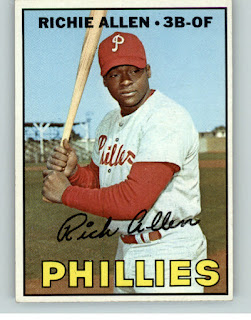In the summer of 1967, during the break between my sophomore and junior years of college, I was sharing a basement apartment on New Hampshire Ave. in Washington, DC, with my good buddy from high school, Bruce Ingraham. The apartment wasn’t much, but it had the distinct advantage of being a half block from Dupont Circle, the very heart of the youth culture of 1960s Washington, often called the Greenwich Village of DC. At any time of the day or night on the Circle you could hear folk music, jazz, bluegrass, or Caribbean and African rhythms, or listen to a group of people protesting the Vietnam War or debating civil rights issues, or the latest William Burroughs novel. You could get a good high by just breathing in the “grass” fumes as you walked across the circle.
DC also had the advantage of having a drinking age of 19. As
a just-turned 20-year-old, this was my first experience of being able to walk
into a bar, any bar, and ordering a beer. I can honestly say that this boy from
more restrictive Pennsylvania took full advantage of this unique opportunity.
I had not seen much baseball that summer. Our apartment did
not have a television and Bruce was not a baseball fan, but I was determined to
take in the 1967 All-Star Game, which was to be played on July 11 in the brand new Anaheim Stadium, home of the Angels in Anaheim, California. I hadn’t missed an All-Star Game in at least 10 years, and I wasn’t
going to miss this one, with my Phillies hero, Dick Allen, in the starting lineup.
I decided to take in the game at my new favorite watering
hole, the Ben Bow Inn on Connecticut Avenue. The Ben Bow was a dimly lit, narrow
joint that resembled, as one might expect of a place named after a tavern in Robert
Louis Stevenson’s Treasure Island, a ship’s galley. It hosted an
eclectic mix of patrons ranging from beat poets to rednecks, students to
businessmen, gay liberationists to motorcycle gang members. Most importantly,
at the moment, it had a television tuned to the All-Star game and Michelob Dark beer on tap.
I was about halfway through my first Michelob, when Allen,
batting fifth in the order, stepped to the plate to lead off the top of the
second inning. There was no score in the game. The pitcher was the Minnesota Twins' ace Dean Chance, getting a
chance to start the All-Star game in the town where he had been a star pitcher for the Angels for many years. Allen worked the count to 1-1 and then smashed a low and away breaking ball to deep center field. Tony Oliva, playing centerfield, raced back and then gave up as the ball disappeared over the fence. The announcer was gob smacked that Allen could hit that pitch that far. You can see it all happen here.

No comments:
Post a Comment